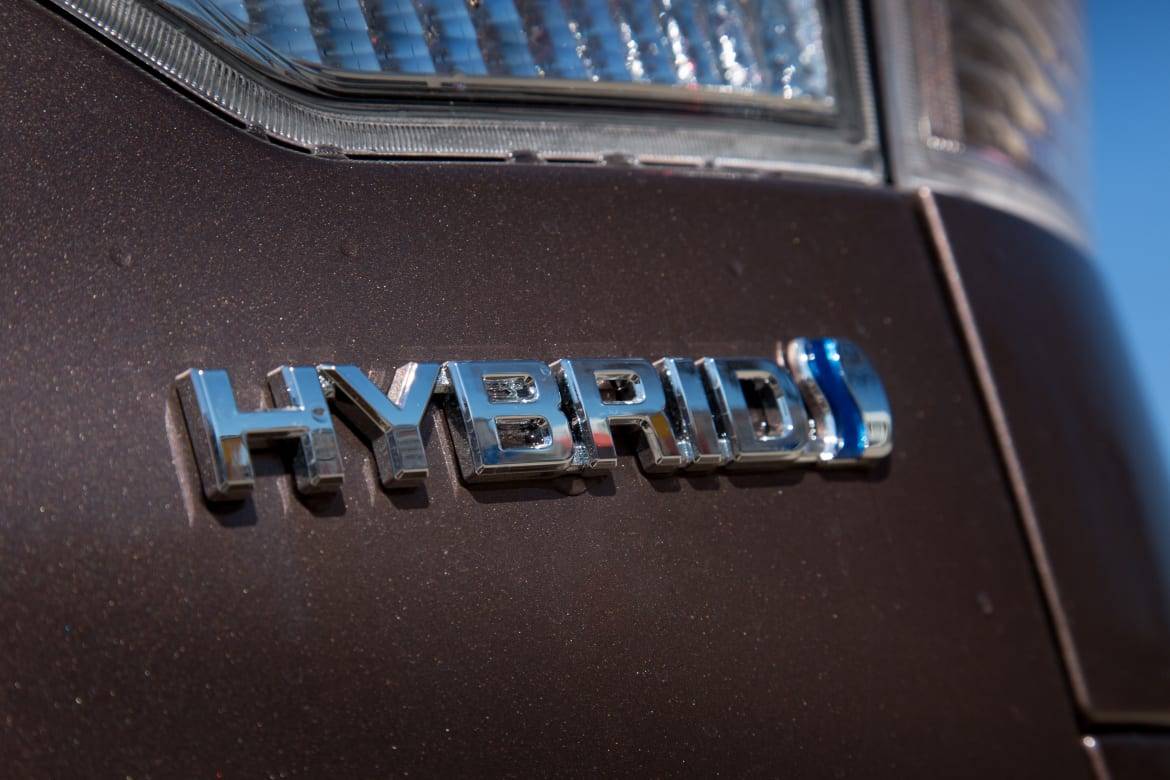Hybrids Now Depreciate Less Than Non-Hybrids, Study Shows


CARS.COM — Gas is still relatively cheap, but hybrids are also becoming more affordable. Is it time to give them a closer look? A recent study by Autolist found that some hybrid vehicles are holding their value better than gas-powered versions — historically, it’s been the other way around.
- ${price_badge()}
- ${ami_badge()}
- ${battery_badge()}${ev_report_link()}
- ${hot_car_badge()}
- ${award_badge()}
- ${cpo_badge()}
${price_badge_description}
${ami_badge_description}
The EV Battery Rating is based on this vehicle's current expected range relative to the vehicles expected range when new. ${battery_badge_text}
Certified cars are manufacturer warrantied and typically go through a rigorous multi-point inspection.
This car is likely to sell soon based on the price, features, and condition.
${award_blurb}
${award_two_blurb}
Shop the 2017 Toyota Highlander Hybrid near you

The study looked at model-year 2013-17 vehicles with 100,000 miles or more and found that 2017 hybrids lost on average 50.9 percent of their value compared with non-hybrids, at 53.4 percent. According to the study, model-year 2013 depreciation rates between gas and hybrid versions of the same model were very different.
Autolist looked at data points for more than 95 million vehicles and Toyota models came out ahead, showing particular depreciation resistance over their gas-powered siblings. For the hybrid versions of both the Camry sedan and Highlander SUV, there were significant gaps in depreciation rates compared with non-hybrid models.
For the model-year 2013 Camry, data showed depreciation at 100,000 miles is minus 44 percent for the gas version versus minus 61 percent for the hybrid model. Jump to model-year 2017, however, and it’s minus 50.2 percent for the hybrid and minus 50.7 percent for the gas. Similarly, the 2013 Highlander gas and hybrid’s depreciations are minus 36.9 percent and minus 45.5 percent, respectively, but in 2017 the gap is down to minus 29.8 percent for the hybrid and minus 34.9 percent for the gas version.
Autolist’s Vice President of Data Science, Alex Klein, explained that the study’s deprecation rates are based off historical and actual data for the vehicles. Using that data, the company has a predicted depreciation curve, which forecasters adjust as new data points come in as the model ages.
Why is the gap narrowing now? One reason, Klein said, has to do with leaps in technology.
“First, hybrid technology continues to improve, further enhancing the value proposition of higher mpg,” Klein said. “Second, now that hybrids have been available longer and consumers see, in many cases, the equivalent reliability, it quells fears that the additional technology could somehow be detrimental.”
It also has to do with the rise in popularity of hybrids and electric cars, he added. “I think you cannot discount the shifting consumer mindset towards electrification and next-generation technology (e.g., autonomy). If it feels like future technology, people generally value it more — just look at Tesla.”
For consumers looking for a monetary reason to go green with a hybrid, the hybrid vehicle’s price premium and historically low gas prices make it a tough argument. But if hybrids are holding their value better than non-hybrids, they could end up being the better investment.
Take a look at the full study here.

News Editor Jennifer Geiger joined the automotive industry in 2003, much to the delight of her Corvette-obsessed dad. Jennifer is an expert reviewer, certified car-seat technician and mom of three. She wears a lot of hats — many of them while driving a minivan.
Featured stories




